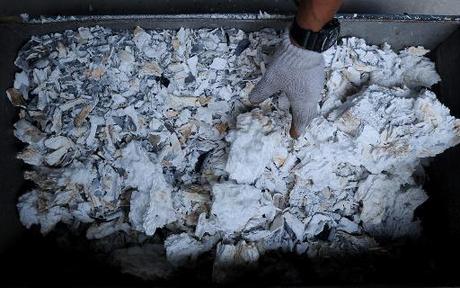Philippines to Build Elephant Monument from Destroyed Ivory

The Philippines is to build an elephant monument from the ashes of seized tusks it destroyed in a landmark action against the ivory trade, an official said Thursday.
The ash will be mixed with concrete to build a giant sculpture of a mother elephant protecting her calf, said Josie de Leon, chief of the environment ministry's wildlife division.
"It is a reminder to everyone about the Philippines' historical action regarding the destruction of ivory," she told Agence France Presse.
The sculpture will stand about four meters (13 feet) tall when completed later this year at the same Manila park where the tusks were destroyed, de Leon said.
The Philippines crushed five tonnes of elephant tusks with a backhoe in June last year, becoming the first Asian country and the first country without native elephants to destroy illegal, confiscated ivory.
The crushed tusks were later burned in an animal crematorium in a demonstration of the country's determination to shed its image as one of the world's worst hotspots for illegal African ivory trading.
The Philippines took the landmark step three months after it was named by the Convention on International Trade in Endangered Species (CITES) as one of eight nations that was failing to do enough to tackle the illegal trade in elephant ivory.
It was criticized for its role as a transport hub for African ivory being smuggled into other Asian countries where it is used in statues, trinkets and other items to showcase wealth.
Demand is also high in the Catholic Philippines, with the ivory used for religious icons.
The United Nations and conservation groups have warned the demand for ivory is leading to the slaughter of thousands of African elephants each year, possibly leading to their extinction.



